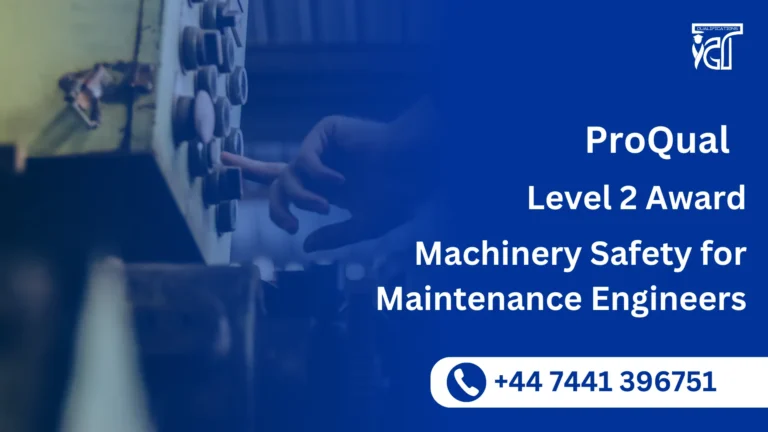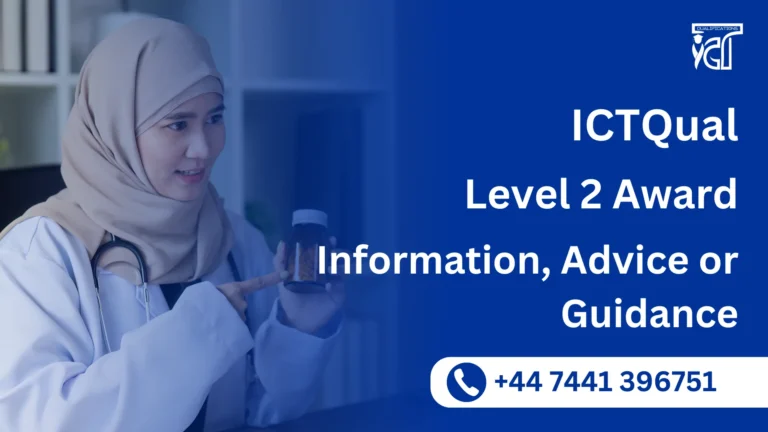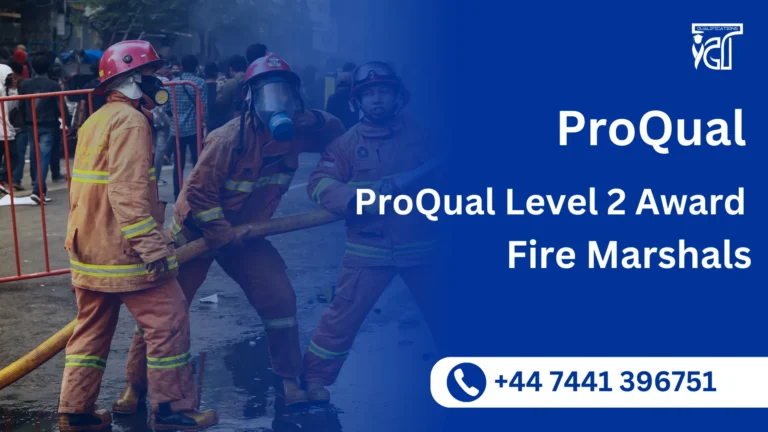Are you passionate about supporting students and making a positive impact in the educational system? The Focus Awards Level 2 Award in Support Work in Schools (RQF) is a fantastic qualification that equips you with the essential skills and knowledge to pursue a career as a teaching assistant or support staff in schools. This qualification is recognized and accredited by Ofqual, making it a highly respected credential in the educational sector.
The Focus Awards Level 2 Award in Support Work in Schools (RQF) is designed for individuals who want to pursue a career in supporting teaching and learning in schools. It provides learners with the knowledge and practical skills required to support teachers and students effectively within a school environment. This qualification is a perfect starting point for those looking to work in roles such as teaching assistants, learning support assistants, and other support staff positions.
The Level 2 Award in Support Work in Schools (RQF) consists of a series of mandatory and optional units designed to provide learners with the fundamental knowledge needed to work in a school setting. You will gain insights into areas like child development, classroom support, safeguarding, and working with children with special educational needs (SEN).
The Focus Awards Level 2 Award in Support Work in Schools (RQF) is an excellent qualification for anyone looking to start or advance a career in the education sector. Whether you’re aiming to become a teaching assistant or enhance your skills as a school support worker, this course offers the foundation and practical experience you need to succeed. With flexible learning, a globally recognized qualification, and a clear pathway for career progression, this course can open doors to a fulfilling and rewarding career supporting children and young people in schools.
If you’re passionate about making a difference in the lives of students and want to develop your skills as a valuable member of the school team, then the Focus Awards Level 2 Award in Support Work in Schools (RQF) is the perfect course for you.
Focus Awards Level 2 Award in Support Work in Schools (RQF)
The Focus Awards Level 2 Award in Support Work in Schools (RQF) qualification consists of Total Qualification Time (TQT): 120, Guided Learning Hours (GLH): 70 and Credits : 12 for the completed qualification.
| Sr# | Unit Title | Credit | GLH |
|---|---|---|---|
| 1 | Child and young person development | 2 | 15 |
| 2 | Safeguarding the welfare of children and young people | 3 | 20 |
| 3 | Communication and professional relationships with children, young people and adults | 2 | 15 |
| 4 | Equality, diversity and inclusion in work with children and young people | 2 | 15 |
Optional Units:
| Sr# | Unit Title | Credit | GLH |
|---|---|---|---|
| 1 | Schools as organisations | 3 | 20 |
| 2 | Schools as organisations | 3 | 15 |
GLH (Guided Learning Hours) and TQT (Total Qualification Time) are terms commonly used in vocational qualifications to help define the amount of time a learner is expected to spend on their studies.
1. GLH (Guided Learning Hours)
GLH refers to the number of hours a learner spends being directly taught, supervised, or supported during their course. This includes the time spent in activities such as:
- Classroom instruction
- Practical workshops
- One-on-one tutoring or mentoring sessions
- Online learning sessions with tutor support
In other words, GLH represents the time that learners are actively engaged with their instructors or learning activities.
2. TQT (Total Qualification Time)
TQT represents the total amount of time a learner is expected to invest in completing a qualification, including:
- GLH (Guided Learning Hours): Time spent on direct learning, as explained above.
- Self-Directed Learning: This includes time spent on independent study, research, assignment completion, preparation for exams, and any other work the learner does outside of direct teaching hours.
TQT is a broader measure that includes all the time required to achieve the qualification. It helps learners and employers understand the overall commitment required for the qualification.
Key Differences Between GLH and TQT:
- GLH focuses on direct learning with guidance or supervision.
- TQT includes GLH as well as independent study time and other learning-related activities.
Example:
If a qualification has a TQT of 600 hours and a GLH of 250 hours, it means the learner should spend 250 hours in direct learning (classroom, online, or tutor-led sessions) and 350 hours on independent study or research.
Learning Outcomes for the Focus Awards Level 2 Award in Support Work in Schools (RQF):
Mandatory Units
1. Child and Young Person Development
- Understand the stages of child and young person development, including physical, cognitive, social, and emotional aspects.
- Recognize the impact of family, culture, and environment on development.
- Identify the needs of children and young people at various developmental stages and how to support their growth in a school setting.
2. Safeguarding the Welfare of Children and Young People
- Understand the key concepts of safeguarding and child protection.
- Identify the signs and symptoms of abuse and neglect in children and young people.
- Know how to respond to concerns and report them to designated safeguarding leads within the school.
- Be aware of relevant safeguarding legislation and policies that protect children and young people.
3. Communication and Professional Relationships with Children, Young People, and Adults
- Develop effective communication skills with children, young people, and adults, using both verbal and non-verbal techniques.
- Understand how to build professional relationships that foster trust and respect in the school environment.
- Work collaboratively with parents, teachers, and school staff to support the learning and well-being of children and young people.
4. Equality, Diversity, and Inclusion in Work with Children and Young People
- Understand the principles of equality, diversity, and inclusion in the context of working with children and young people.
- Recognize the importance of creating an inclusive environment in schools where all children feel supported and valued, regardless of background or needs.
- Apply inclusive practices when working with children and young people from diverse cultural, social, and economic backgrounds.
Optional Units
5. Schools as Organisations
- Be aware of school regulations and how they influence day-to-day operations within educational institutions.
- Understand the structure and function of schools, including roles and responsibilities of staff members.
- Learn about policies and procedures that govern school activities and their impact on the learning environment.
- Recognize the importance of collaboration between schools and other services to support children and young people.
Benefits of the Focus Awards Level 2 Award in Support Work in Schools (RQF)
The Focus Awards Level 2 Award in Support Work in Schools (RQF) offers numerous benefits for individuals aspiring to work in educational support roles. Whether you’re just starting your career or seeking to formalize your qualifications, this course provides essential training for working with children and young people in schools. Below are some key benefits of this course:
1. Industry-Recognized Qualification
- This course is Ofqual-regulated, meaning it is officially recognized and respected by employers within the education sector.
- The qualification is widely accepted across the UK and internationally, enhancing your employability opportunities both locally and globally.
2. Career Advancement
- Completing the Level 2 Award in Support Work in Schools opens up various career opportunities in schools, including roles such as teaching assistants, learning support assistants, and SEN support staff.
- The qualification lays the groundwork for further studies, including progression to Level 3 qualifications in teaching or education support roles.
3. Practical and Relevant Skills
- The course is designed to equip you with the practical skills and knowledge needed to support teaching and learning in schools.
- You’ll learn about essential areas like child development, safeguarding, communication with students and staff, and promoting inclusion in the classroom.
4. Flexible and Self-Paced Learning
- The course offers assignment-based learning, allowing you to study at your own pace and fit your learning around personal commitments or work schedules.
- You will receive the necessary support from qualified tutors throughout your learning journey, helping you stay on track and successfully complete the course.
5. Foundation for Working in Schools
- This qualification provides a solid foundation for anyone wanting to start a career in school support, offering the core skills and understanding required for working effectively in a school environment.
- It covers a variety of topics that directly apply to real-world school scenarios, such as safeguarding children, supporting students with special educational needs (SEN), and understanding school regulations.
6. Enhanced Job Readiness
- The course is tailored to prepare you for practical work environments, ensuring you’re ready to make an immediate positive impact once you begin your role in a school.
- You will gain the confidence and competence needed to work effectively with children, teachers, and other staff members, making you a valuable asset in any educational setting.
7. Development of Key Professional Skills
- Communication skills with children, young people, and adults.
- Understanding and promoting equality, diversity, and inclusion.
- Building professional relationships within a school setting, both with staff and students.
- Developing a comprehensive understanding of safeguarding procedures and how to support child welfare.
8. Supports Personal Growth and Confidence
- By completing the course, you will gain a deeper understanding of your role in supporting children’s development, making you a more effective contributor in school settings.
- The course also fosters self-awareness, allowing you to reflect on your practice and continually improve.
9. Access to Further Educational Opportunities
- After completing this qualification, you will be eligible to progress to more advanced qualifications in education support, such as the Level 3 Diploma in Specialist Support for Teaching and Learning in Schools.
- It also provides opportunities for those interested in pursuing specialized roles in education, such as working with children with special educational needs (SEN) or taking on leadership roles in schools.
Best Fit for the Focus Awards Level 2 Award in Support Work in Schools (RQF)
The Focus Awards Level 2 Award in Support Work in Schools (RQF) is an ideal qualification for individuals who are passionate about supporting children’s education and development within school settings. Below is an overview of the best-fit candidates for this course:
1. Aspiring Teaching Assistants
- If you are looking to start a career as a teaching assistant or learning support assistant in a school environment, this course provides the essential foundation in child development, safeguarding, and communication skills.
- It is perfect for those who want to support students with a variety of learning needs, including those with special educational needs (SEN).
2. Individuals with an Interest in Working with Children
- Whether you’re interested in primary or secondary education, this course is suitable for anyone who enjoys working with children and young people.
- If you’re enthusiastic about fostering an inclusive and supportive learning environment, this qualification will equip you with the knowledge needed to succeed.
3. Career Changers
- If you’re considering a career change into the education sector, this qualification offers the necessary skills and understanding of school environments, communication, safeguarding, and child development.
- Those with prior experience in other sectors (e.g., childcare or customer service) may find this course an excellent bridge into school support work.
4. Current Education Support Staff Seeking Formal Qualifications
- If you’re already working in a support role in schools but lack formal qualifications, this course offers you a way to formalize your skills and enhance your employability.
- The course helps existing staff expand their knowledge in areas such as safeguarding, professional relationships, and child development, which are essential for career advancement.
5. Individuals Seeking to Specialize in Support for Vulnerable Children
- For those interested in specializing in special educational needs (SEN) or working with vulnerable children, this qualification provides a good starting point for further specialization.
- The course’s focus on safeguarding and inclusion is ideal for anyone committed to supporting children from diverse backgrounds, including those with additional needs.
6. Entry-Level Candidates in the Education Sector
- This course is designed for individuals who are new to the education sector and are looking for a comprehensive qualification to start their career in support roles within schools.
- It’s well-suited to individuals who have no prior qualifications in education but have a strong interest in child development and learning support.
Entry Requirements
Register Now
Qualification Process
Qualification Process for the Focus Awards Level 2 Award in Support Work in Schools (RQF)
- Self-Assessment:
Begin by evaluating your eligibility to ensure you meet the qualification requirements, including work experience, knowledge, and language proficiency. - Registration:
Complete your registration by submitting the required documents, including a scanned copy of a valid ID, and paying the registration fee. - Induction:
An assessor will conduct an induction to confirm your eligibility for the course and explain the evidence requirements. If you do not meet the criteria, your registration will be canceled, and the fee will be refunded. - Assignmnets & Evidence Submission:
Provide all assignmnets and the necessary evidence based on the assessment criteria outlined in the course. If you are unsure of the required evidence, consult with the assessor for guidance on the type and nature of evidence needed. - Feedback and Revision:
The assessor will review your submitted evidence and provide feedback. Evidence that meets the criteria will be marked as “Criteria Met,” while any gaps will be identified. You will be asked to revise and resubmit if needed. - Competence Evidence:
Submit final evidence demonstrating that all learning outcomes have been met. This evidence will be marked as “Criteria Met” by the assessor once it is satisfactory. - Internal Quality Assurance (IQA):
The Internal Quality Assurance Verifier (IQA) will review your evidence to ensure consistency, quality, and compliance with standards. - External Verification:
The IQA will submit your portfolio to Focus Award External Quality Assurance Verifiers (EQA) for final confirmation. The EQA may contact you directly to verify the authenticity of your evidence. - Certification:
Upon successful completion of all checks, FOCUS AWARD will issue your official certificate, confirming that you have attained the Focus Awards Level 2 Award in Support Work in Schools (RQF).







